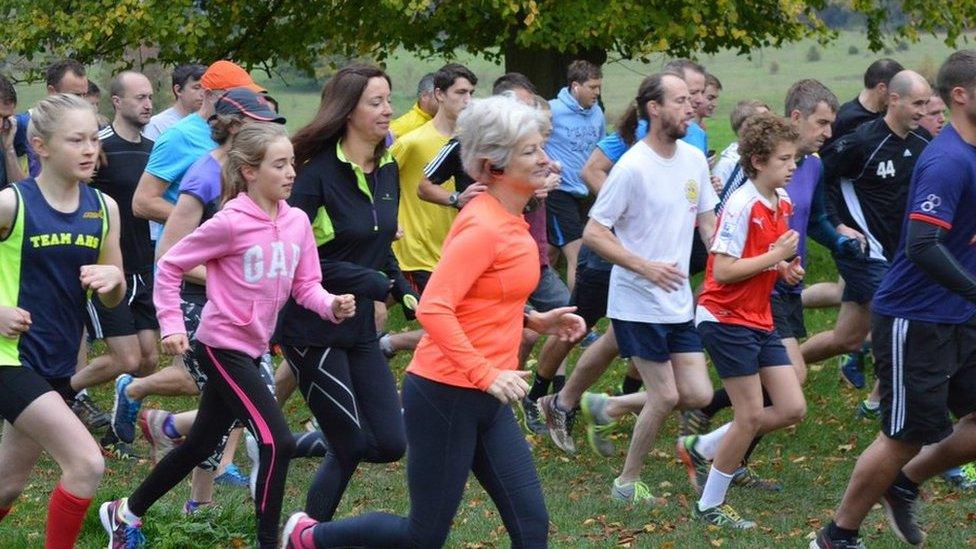Covid: Boris Johnson lifts all legal restrictions in England
- Published
- comments
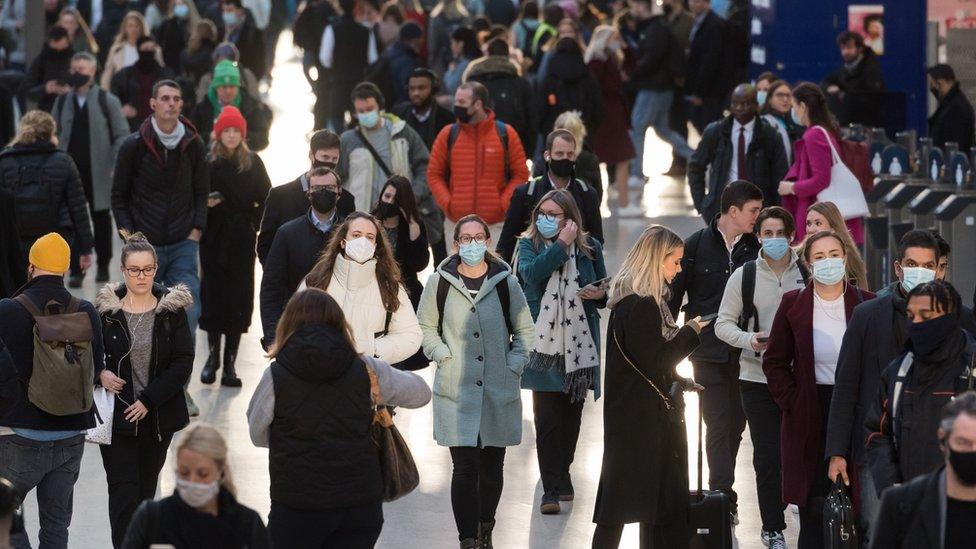
Prime Minister Boris Johnson has announced plans to scrap all remaining legal Covid restrictions in England, including the need to isolate.
From Thursday 24 February, people who test positive for Covid will no longer need to isolate by law, and free lateral flow testing will stop on 1 April.
And from today, the government has removed its advice for staff and students in most schools to test twice a week for Covid.
"Let us learn to live with this virus and continue protecting ourselves and others without restrictions on our freedoms," he said.
The prime minister made the announcement to Members of Parliament (MPs) on his plans in the House of Commons.
But some scientists, health leaders and charities have said they're concerned about the lifting of all restrictions, and what it could mean for vulnerable people.
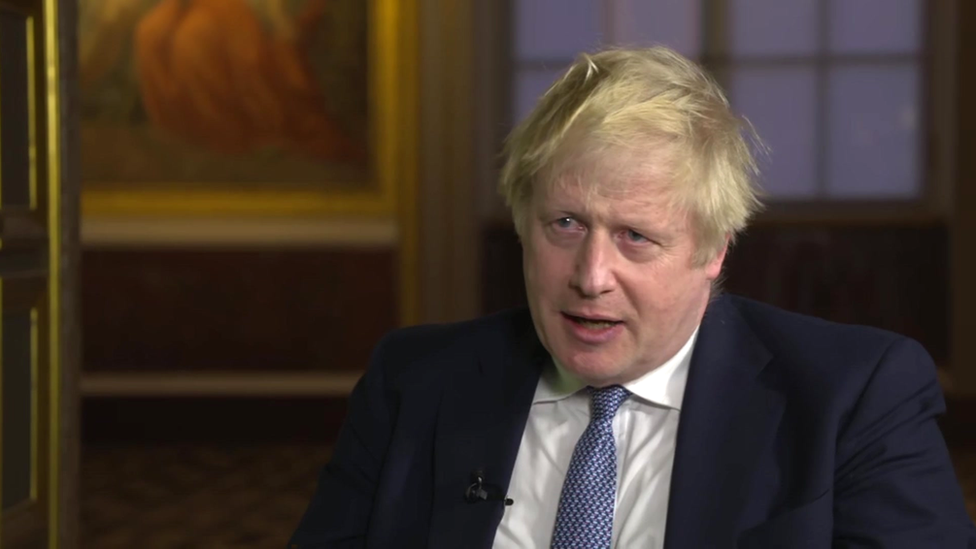
The prime minister told the BBC it was important to remain careful over Covid
Just over 91% of people in the UK aged 12 and over have had a first dose of a vaccine, 85% a second jab, and 66% a booster or a third dose, according to official data collected since December 2020.
A Downing Street spokesperson said the success of the Covid vaccination programme had put England in a "strong position to consider lifting the remaining legal restrictions".
It added the pandemic was "not over" and the plan for living with Covid would take a "cautious approach" which would keep plans in place to respond to any new Covid variants if they appear.
What will change in England?
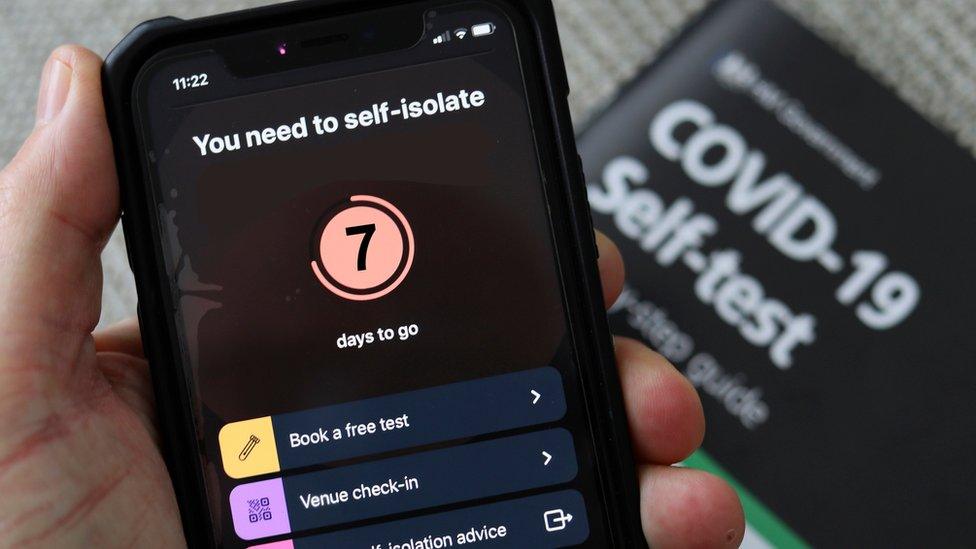
Prime Minister Boris Johnson says people can protect themselves without the need for legal restrictions
Currently people testing positive for Covid in England have to isolate for up to 10 days, but can end their isolation earlier if they record negative lateral flow tests on both days five and six.
But under Mr Johnson's new plans, this legal requirement to self-isolate will be scrapped on Thursday 24 February.
As well as this, free lateral flow testing for people to test themselves for Covid-19 will end on 1 April.
But he says the government will continue to provide free tests for people in the oldest age groups and those who are most vulnerable who show symptoms.
The plans would also see councils in England become responsible for managing Covid outbreaks in the future.
What's the reaction been to the new plans?
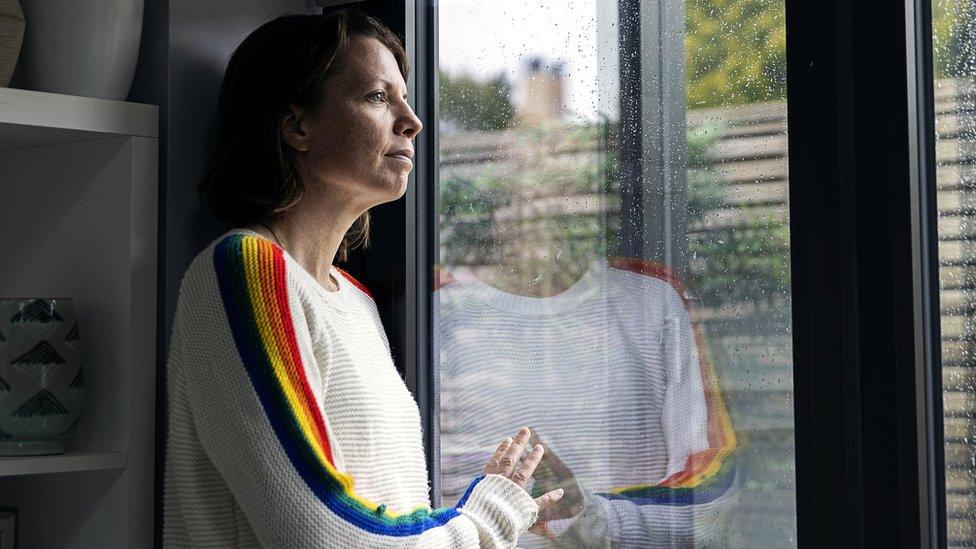
The need to self-isolate after a positive Covid test is expected to be scrapped in England
Speaking before Monday's announcement, Mr Johnson said his plan would bring society "towards a return to normality" after "one of the most difficult periods in our country's history".
But politician Wes Streeting - a senior member of the PM's rivals, the Labour Party - said he was worried about the end of free testing saying the decision was "like being 2-1 up with 10 minutes left of play and subbing your best defender", adding: "We are not out of the woods yet".
Speaking in parliament Kier Starmer who is the leader of the Labour party said the PM had promised a plan for living with Covid - but all we've got today is "chaos and disarray".
He says not enough is being put in place to prepare for new variants that may develop - and says it seems that for the PM, living with Covid "means ignoring it".
Dr Chaand Nagpaul, the chair of the British Medical Association, said infections need to fall further before the rules were relaxed and called on ministers to release data to support their decision.
"It does appear as if the government is trying to pretend that Covid doesn't exist in the day-to-day lives of so many people," he told the BBC, suggesting it should stick to the original plan to keep the rules in place until the end of March.
Plan B measures - introduced in December to stem the spread of the Omicron variant - including the rule to wear masks in public places and the use of Covid passes for large events, were lifted in England last month.
What are the rules in other parts of the UK?
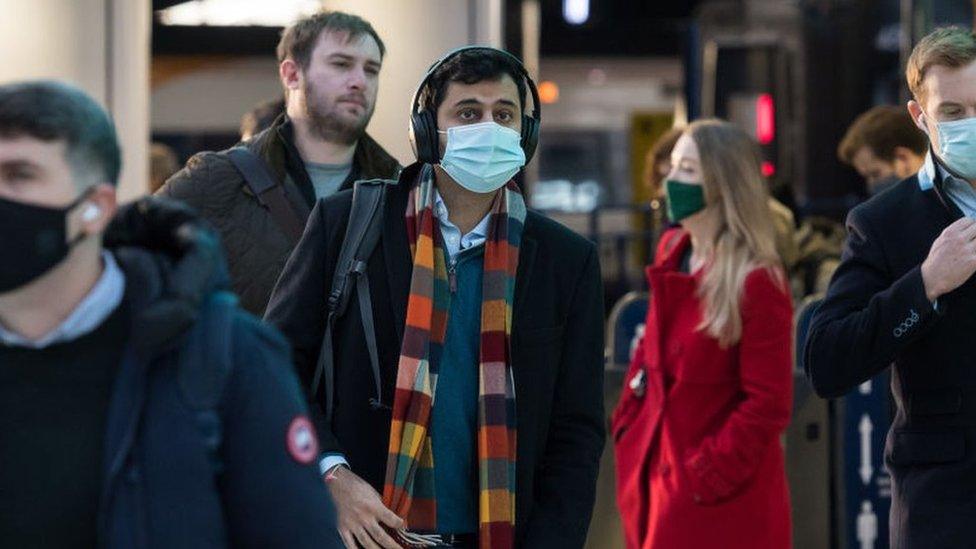
The UK's devolved nations - Scotland, Wales and Northern Ireland - have made their own Covid rules throughout the pandemic.
In Northern Ireland, all remaining Covid measures - such as Covid certificates in nightclubs, face coverings, and limits on gatherings in homes - stopped being legally binding on Tuesday.
Wales is currently at alert level zero, its lowest level of Covid rules.
In Scotland, First Minister Nicola Sturgeon will update the Scottish Parliament on the pandemic on Tuesday.
But rules on face coverings and vaccine passports there have been extended for another six months.
- Published27 January 2022
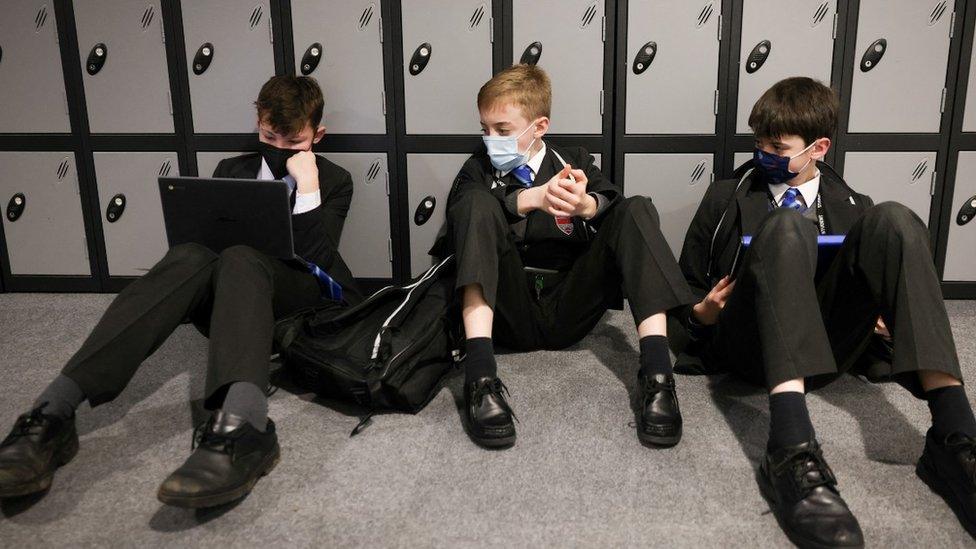
- Published24 January 2022

- Published15 January 2022
